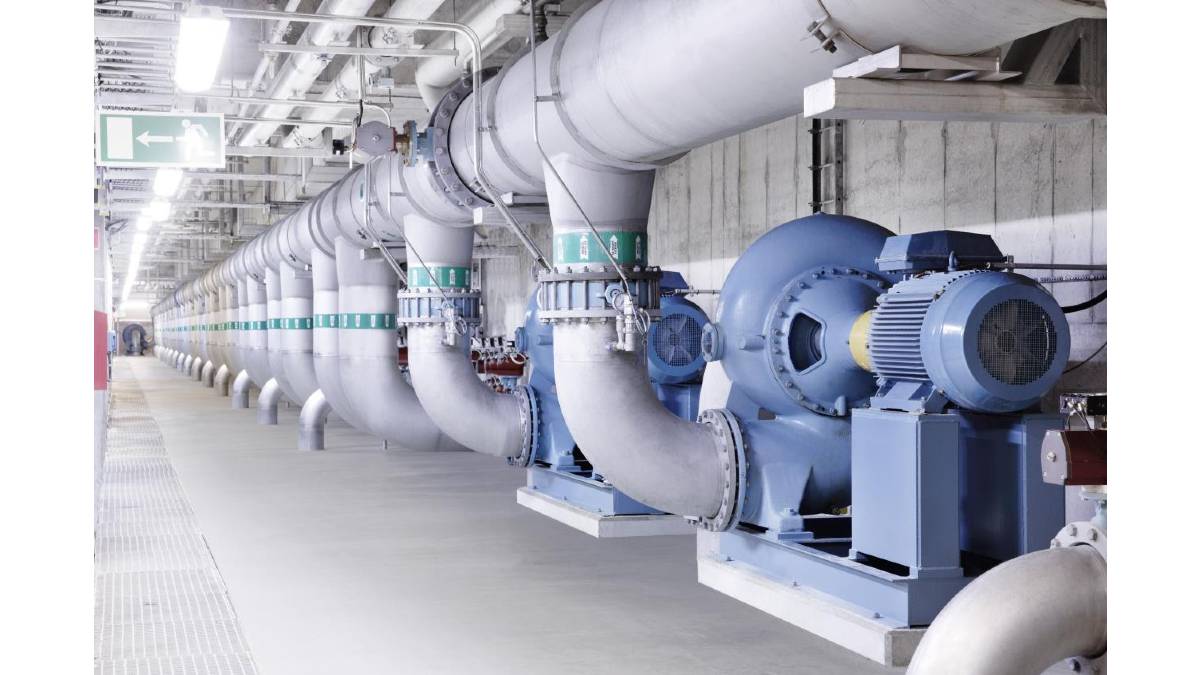 International. In a new whitepaper, ABB reveals the potential for significant improvements in energy efficiency in industry and infrastructure thanks to the latest and most efficient motors and variable speed drives. ABB is calling on governments and industry to accelerate the adoption of the technology to help combat climate change.
International. In a new whitepaper, ABB reveals the potential for significant improvements in energy efficiency in industry and infrastructure thanks to the latest and most efficient motors and variable speed drives. ABB is calling on governments and industry to accelerate the adoption of the technology to help combat climate change.
According to the International Energy Agency (IEA), industry accounts for 37% of global energy use and around 30% of the world's energy is consumed in buildings.
Although mostly hidden from public view, electric motors, and variable speed drives that optimize their operation, are integrated into almost all built environments. They power a wide range of applications fundamental to our modern lifestyle, from industrial pumps, fans and conveyors for manufacturing and propulsion systems for transportation to compressors for household appliances and heating, ventilation and air conditioning systems in buildings.
Engine and transmission technologies have experienced exceptionally rapid advancement over the past decade, with today's innovative designs delivering remarkable energy efficiencies. However, a significant number of industrial systems powered by electric motors in operation today, some 300 million worldwide, are inefficient or consume much more energy than required, resulting in monumental energy waste.
Independent research estimates that if these systems were replaced by high-efficiency optimized equipment, the gains that would be made could reduce overall electricity consumption by up to 10%. In turn, this would represent a significant reduction in greenhouse gas emissions needed to meet the 2040 climate targets set by the Paris Agreement.
"Industrial energy efficiency, more than any other challenge, has the greatest capacity to combat the climate emergency. It's essentially the world's invisible climate solution," said Morten Wierod, president of ABB Motion. For ABB, sustainability is a key part of our company's purpose and the value we create for all our stakeholders. By far the biggest impact we can have on reducing greenhouse gas emissions is through our leading technologies, which reduce energy use in industry, buildings and transportation.
Considerable steps have already been taken to support the adoption of electric vehicles and renewable energy sources. ABB believes it's time to do the same with an industrial technology that will deliver even greater benefits for the environment and the global economy.
"The importance of transitioning industries and infrastructure to these energy-efficient drives and motors to play their role in a more sustainable society cannot be underestimated," continued Morten Wierod. "Given that 45% of the world's electricity is used to power electric motors in buildings and industrial applications, investment to improve them will yield huge rewards in terms of efficiency."
ABB frequently assesses the net impact of its own installed high-efficiency motors and drives on overall energy efficiency. In 2020, it enabled electricity savings of 198 terawatt-hours, more than half of the UK's annual consumption. By 2023, it is estimated that ABB's motors and frequency converters will enable customers around the world to save an additional 78 terawatt-hours of electricity per year, almost as much as the annual consumption of Belgium, Finland or the Philippines and more than the total annual consumption of Chile.
Regulatory policies are among the main drivers of industrial investment in energy efficiency worldwide. While the European Union will implement its Ecodesign Regulation (EU 2019/1781) this year, which sets out new strict requirements for an expanding range of energy-efficient motors, many countries have yet to take action.
To take advantage of the tremendous opportunities provided by energy-efficient drives and engines to reduce greenhouse gas emissions, ABB says all stakeholders have a critical role to play:
- Public decision-makers and government regulators should incentivize its rapid adoption.
- Companies, cities and countries must be aware of the cost savings and environmental advantages and be willing to make the investment, and
Investors should reallocate capital to companies better prepared to address climate risk.
"While our role at ABB is to always provide the most efficient technologies, products and services to our customers, and to continue to innovate to achieve ever-increasing efficiency, that in itself is not enough. All stakeholders must work together to achieve a comprehensive transformation in the way we use energy. By acting and innovating together, we can keep critical services running while saving energy and combating climate change," concludes Morten Wierod.














